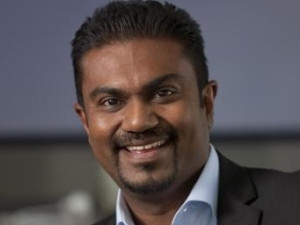
A rising urban population and an increasing demand for better services continuously places pressure on municipalities to ensure better management of cities. Overcoming the many and diverse infrastructure, technological and civil challenges that impact on urban management is no easy task, which is why the concept of the 'smart city' is gaining so much traction.
South Africa can lay claim to the fact that several of its major metros have begun the move towards a smart city, launching solutions that could be defined as the foundational elements of this.
Naturally, any move towards developing a smarter city is good, but for municipalities to truly be successful in implementing a smart agenda, they have to be able to obtain a single view of the citizen. This, says Kroshlen Moodley, GM for Public Sector at SAS South Africa, will enable two-way communication between government and its citizens.
"However, it must be remembered that this merely serves as the foundation for a strong smart city. The real benefit lies in utilising advanced analytics to take service to a whole new level. Such analytics could be used, for example, to analyse weather patterns in the long term, which would give clear indications to emergency services as to where potential flooding might occur," he says.
Having access to the relevant data around seasonal variations, weather patterns and information related to where previous flooding has occurred would enable accurate future predictions. This would then allow emergency services to deploy personnel and vehicles to the right areas early.
"Analytics give municipalities far better predictive knowledge, which not only can help to save lives, but also critical infrastructure. For example, analysing which areas have not received rainfall in some time, and places where there is an abundance of grass enables a council to predict the most likely areas where veld fires may occur and whether there is any critical infrastructure - such as power lines - that may be damaged by this. Municipalities can thus act to prevent such occurrences."
Moodley points out that analytics can play a big role in crime prevention too. He explains that if data from police stations within a specific metro is analysed, managers can know exactly how many vehicles and staff they have available, and can combine this knowledge with a better understanding of crime statistics. In this way, they can ensure that vehicles and personnel are situated closest to the areas where the most responses are likely to be needed.
"A truly smart city is not only about smart responses to disasters either. In a large metro, the municipal supply chain will inevitably be cumbersome and complex. This can lead to situations where duplicate orders are placed or procurement deadlines are missed. Such a situation also makes it much easier for fraud to take place."
In a smart city, continues Moodley, municipal managers will have a single view across the entire supply chain. This would mean they could clearly understand exactly who their suppliers are, who supplies which products and to where, and most critically, what price the government is paying to obtain these products or services.
"This approach will help to minimise fraud in the supply chain, which should not only save the city many millions of rands, but these savings can, in turn, be channelled into healthcare or education services. Alternatively, the money could be ploughed into infrastructure and equipment to further improve the city's smart capabilities," he concludes.
Share